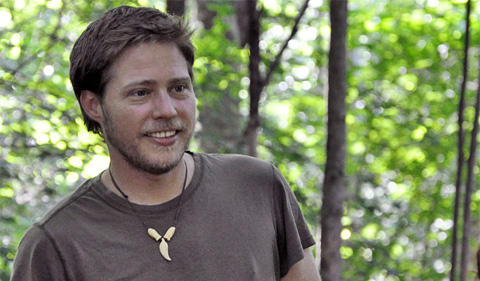“On the outskirts of Athens, set back in the woods amid the rugged Appalachian landscape, 10 students from the Ohio University Archaeological Field School led by site director Paul Patton, have slowly been unearthing about 1,100 years of history in the form of a Native-American rock shelter,” Athens News reporter Erica Mowry on June 19. Mowry notes that undergraduate students are helping Patton, who leads the field school this year, with the excavation. The Field School is part of the College of Arts & Sciences Anthropology program.
Thus far, the field school’s excavation efforts have led to uncovering about 20 thermal features, which are prehistoric hearth constructions; preserved remains of dog and human excrement; hunting tools; and a garbage pit. The garbage pit has given the team some insight into what kind of foods the shelter’s inhabitants consumed. Primarily their diets consisted of maize supplemented with hickory nuts and berries, Patton said.
The students also found charred animal bones and large bone tools in the garbage pit. The bones, some of which have dog’s teeth marks on them, provides evidence of the tribe hunting with dogs.
“The occupation that we’re looking at here dates probably to the late woodland, late prehistoric period,” Patton said, adding that the dates for that period would be from about 900 A.D. to 1,000 A.D., the latter midpoint of the Middle Ages in Europe.
The researchers assume that the shelter was used as a temporary hunting camp for tribe members migrating to the area for a short stay to gather some additional game for the village. Patton said that although they do not know the specific affiliation of the Native American tribe that utilized the shelter, they surmise that the tribe’s village probably was located several miles away on the Hocking River. The tribe would have periodically sent between three and five people to gather meat, nuts and other forms of sustenance, and that those select tribe members would camp out at the shelter, cook, and butcher animals before returning to the village with the gathered goods in tow.
“Right now I’m pretty satisfied with what we’ve found. I think it gives us that picture into this interesting period of transition and change in Ohio’s past,” Patton said. “I think it shows something that most people that even live in this area today can kind of relate to – that is, that concept of going the extra distance to make sure your family has food on the table.” The struggles of these ancient people offer some parallels for modern Athenians, he noted.



















Comments